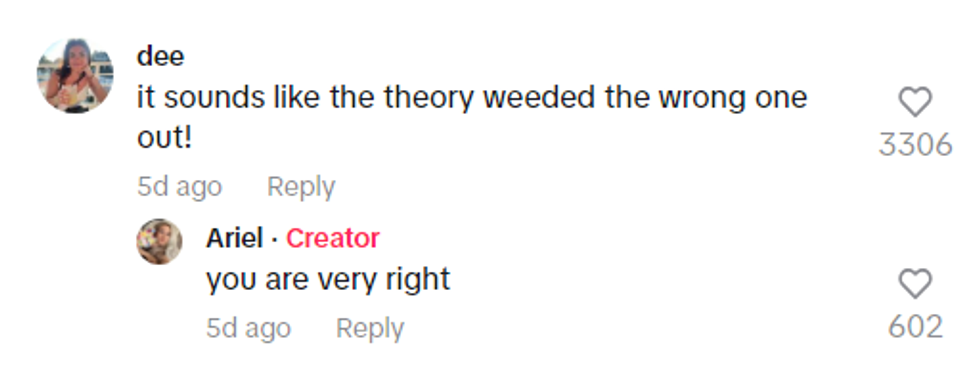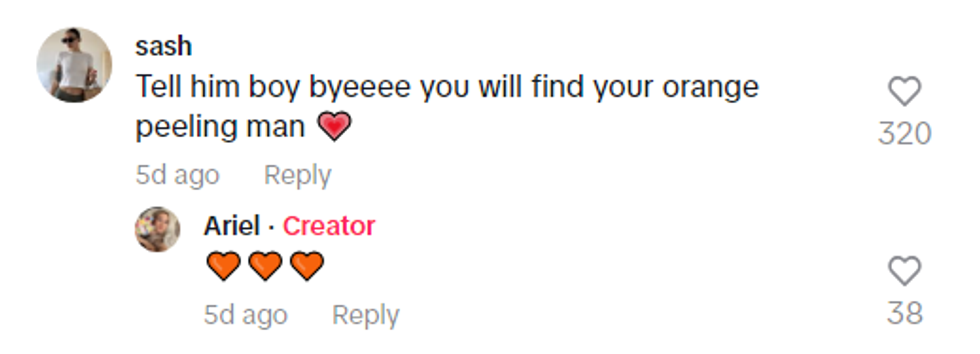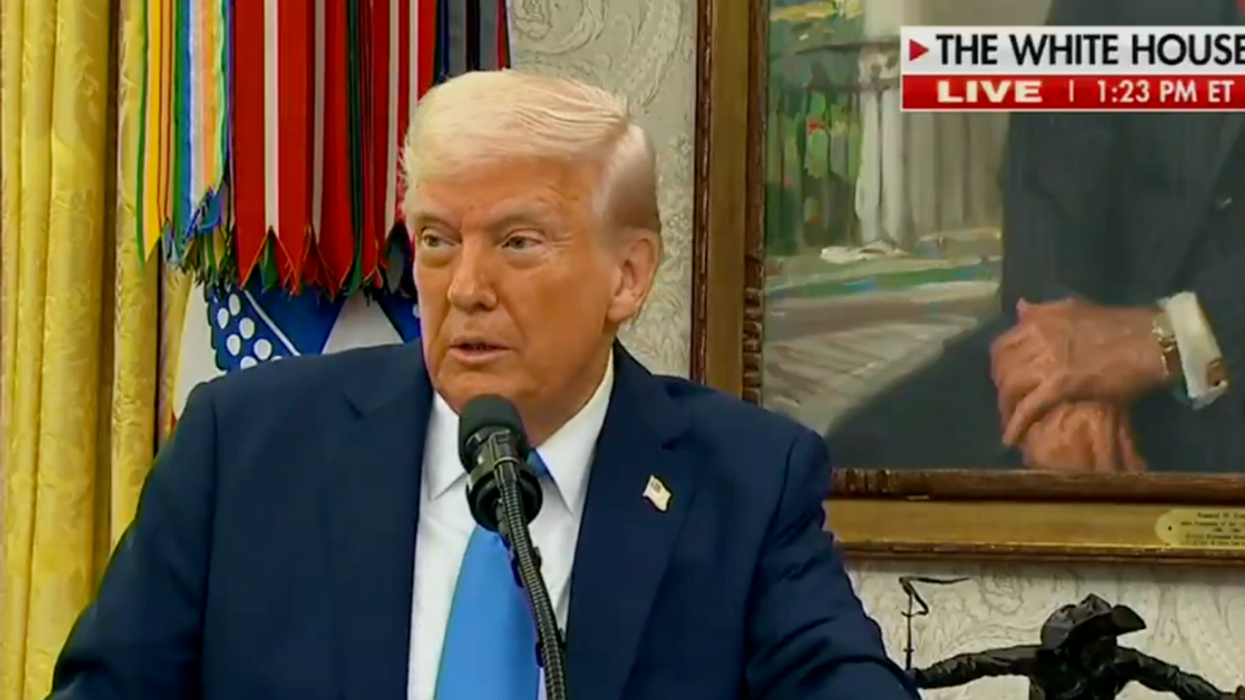Trends are constantly coming and going on social media, but nowhere are they as prevalent as on TikTok. From the early dance-off days to favorite book titles, there seems to be a new trend for everyone regardless of their interests each week!
But one trending topic that is constantly coming up is relationships, specifically whether or not a TikToker has found "a good one." There have been countless challenges and pranks for TikTokers to do on their partners, like gauging their reaction when they don't say 'I love you' back.
Some have started to tire of these trends, however, because they feel more like 'tests' than fun trends. Just like we can't know everything about a person's life from one video, a person also can't decide how good of a partner they're with from one trend—but some are taking decisive action using these trends just the same.
But for one TikToker, the decisive action was taken against her instead.
TikToker @flaw_liss recently shared that she had tried out the 'Orange Peel Theory,' which simply involves asking your partner if they would peel an orange for you, which is supposed to symbolize their willingness to do small kind acts for you and take care of you.
The TikToker was surprised that this was the final straw for her relationship.
"My boyfriend said that the main reason he broke up with me was because I brought up the 'Orange Peel Theory,' and he thought it was ridiculous.'"
"But you know what? I would like someone who wants to peel an orange for me. I wouldn't ask you to; I'd just like to know that you would. Is that too much to ask?"
You can watch the video here:
@flaw_liss orange peel theory was my ex’s final straw 🍊 #orangepeeltheory
The video left many viewers flabbergasted, wondering how a relationship could possibly end over something as minute and shallow as a social media trend.
However, due to the nature of the 'Orange Peel Theory,' it spoke volumes about the quality of a partner that the TikToker had been dating, and it seemed the trend had served as a way to call him out on his commitment and willingness to care for his partner.
Some pointed out that the 'Orange Peel Theory' had indirectly worked.






Others empathized with the TikToker and pointed out the importance of being willing to perform these small acts for each other.








Though the TikToker's former boyfriend did not take the trend well, it seems like the 'Orange Peel Theory' might actually be fairly telling about what a person is willing to do in a relationship.
But experts are divided on how effective the theory is at predicting red flags in a relationship.
In an interview with CBNC, relationship and communication expert Rachel DeAlto noted that "It’s not a red flag if your partner doesn’t peel an orange."
She added:
"However, if they consistently fail to do little things that show consideration for you, or they respond negatively to your requests for help, it may indicate larger issues for you to reconsider."
Relationship psychologist Lisa Marie Bobby agreed, remarking:
"The way that people do small things tends to be a holographic microcosm of how they did big things."
But she also warned against putting too much stock into the viral test, adding:
"I would not make sweeping judgments about how a person peels an orange for you. There is possibly some validity [to the test], but make sure that it is not the only data point you are evaluating."
Instead of asking your partner whether or not they would peel an orange for you in a test meant to "instigate insecurity," DeAlto suggests asking deeper question instead, such as:
"Are they patient?"
"Do they make me feel safe and cared for?"
"How well do they listen and support me?"
Regardless, some people are very focused on physical relations while others are excellent at completing bigger acts, but there's a big lack in the dating world for people who appreciate the small, simple acts that whisper—rather than shout—that someone loves them.
While no one should be breaking up with someone else over a trend, it could at least start an important conversation about where a relationship might be lacking, what everyone wants and values, and what their love languages are so that everyone can feel happy, fulfilled and loved.
That's #relationshipgoals, right?

















 @theviplist/TikTok
@theviplist/TikTok @theviplist/TikTok
@theviplist/TikTok @theviplist/TikTok
@theviplist/TikTok @theviplist/TikTok
@theviplist/TikTok @padmalakshmi/TikTok
@padmalakshmi/TikTok @padmalakshmi/TikTok
@padmalakshmi/TikTok @padmalakshmi/TikTok
@padmalakshmi/TikTok @padmalakshmi/TikTok
@padmalakshmi/TikTok @padmalakshmi/TikTok
@padmalakshmi/TikTok @padmalakshmi/TikTok
@padmalakshmi/TikTok